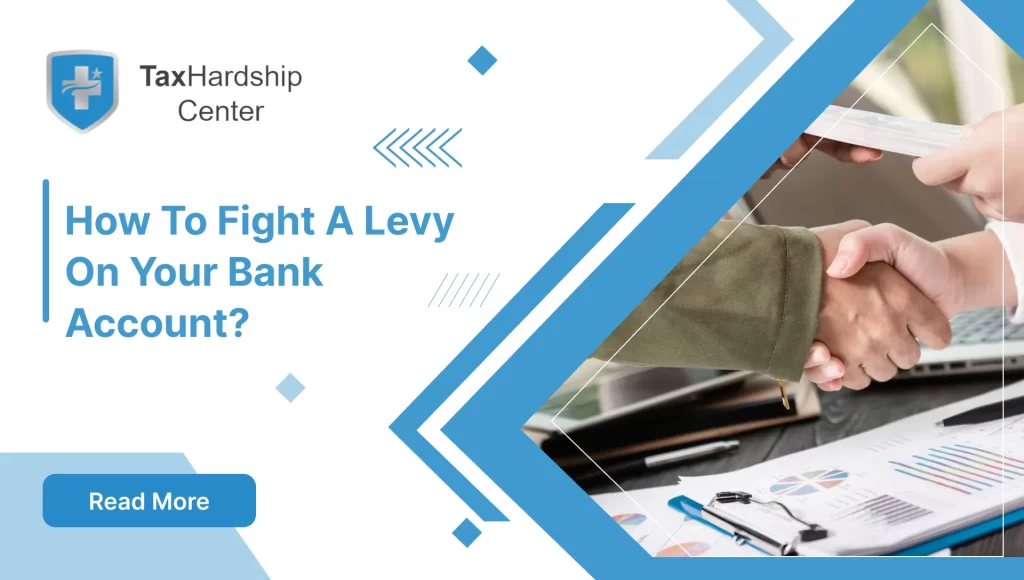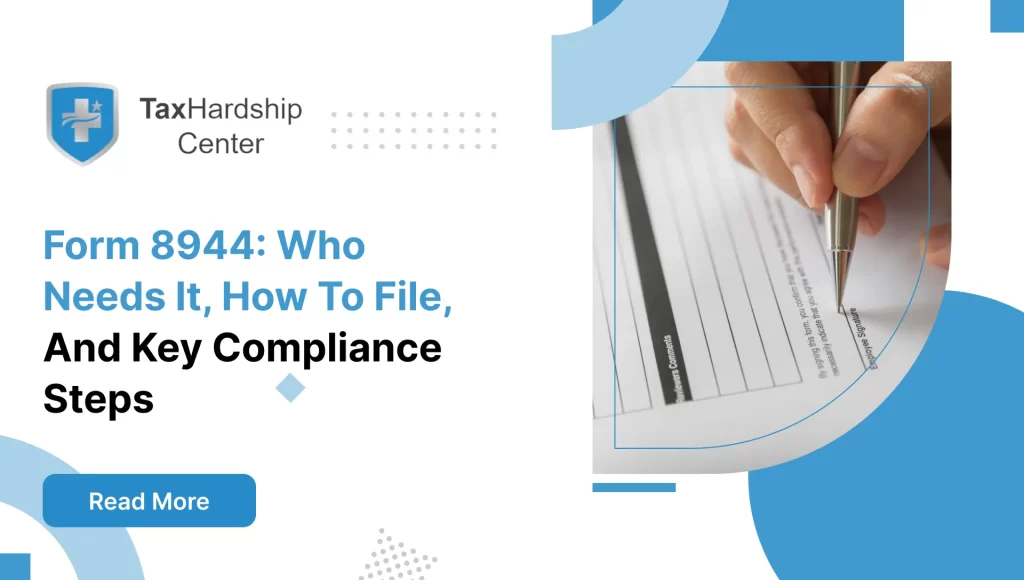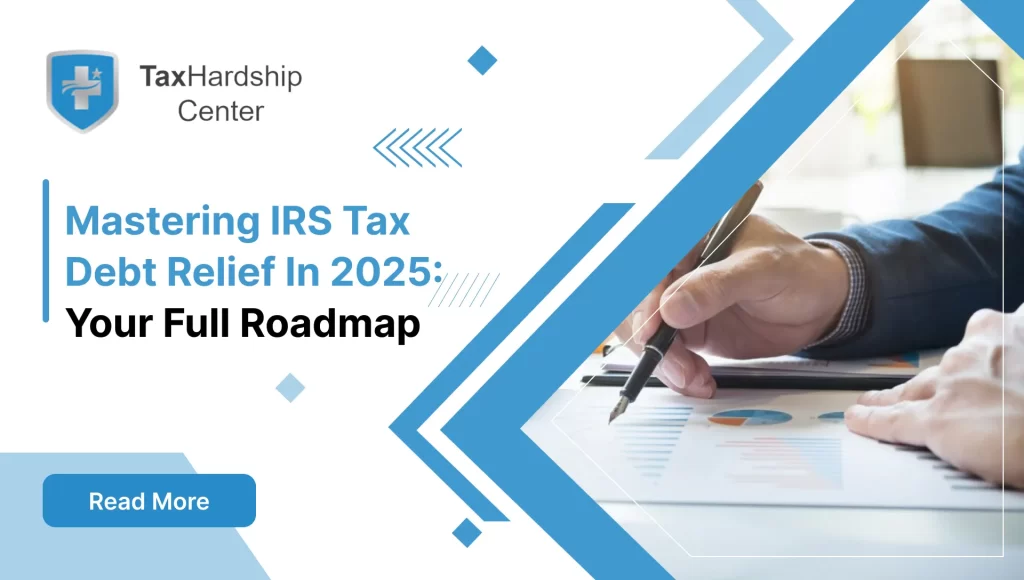How to fight a levy on your bank account becomes urgent when creditors or the IRS freeze your funds. The shock of losing access to your money can upend your life. Yet, you can challenge a levy, protect your finances, and plan for a more secure future. This guide explains why a levy might happen, the legal defenses available, and the steps you can take to stop the process from draining your resources.
Understanding the Bank Levy Process
A bank levy occurs when a creditor or the IRS obtains legal permission to seize money from your account. In most private creditor cases, the party seeking the levy will go through the courts to secure a writ of garnishment. The IRS, by contrast, can exercise its authority if you have neglected your outstanding tax debt. Once the bank receives the notice, it must freeze your account, preventing any withdrawals until the matter is resolved.
Creditors usually send letters or warnings before resorting to a levy. Overlooking those notices or failing to meet deadlines can leave the creditor with little choice but to pursue stronger methods. When you recognize signs of a possible levy, respond promptly to keep your financial options open.
Why a Bank Levy Might Occur
Debts that go unpaid can prompt a levy on your bank account. Whether you have fallen behind on a credit card balance, owe taxes, or defaulted on a loan, the entity you owe has the legal right to seize funds if standard collection attempts are ignored or ineffective.
Persistent nonpayment leads creditors to seek a legal judgment or writ if you fail to return calls or reply to letters. Once they demonstrate to a court that you owe the debt and have not made a good-faith effort to pay, they can proceed with freezing your account. Tax debts allow the IRS to act independently, provided they have sent the required notices. Losing a lawsuit or disregarding a court order can also give creditors the leverage to impose a levy. Delinquent child support is another common cause, as agencies monitor unpaid amounts and often take direct action when payments are overdue. Similarly, defaulting on federal student loans can result in wage garnishment or an eventual levy if your outstanding balance remains unaddressed.
Understanding the particular reason behind your levy determines how best to challenge it. Each scenario may involve specific rules or procedures, making clarity about the root cause a key step in your defense.
Here’s how Tax Hardship Center can help you
When tax debts put you at risk of a levy, Tax Hardship Center can offer tailored solutions. This team specializes in assisting taxpayers who owe the IRS or state agencies, striving to stop or prevent bank account levies. They review your financial situation, propose settlement options, and ensure you meet future tax requirements so you can regain stability. They may help lift a levy before it disrupts your everyday life. For more on their services, visit https://www.taxhardshipcenter.com/ Working with a group that understands how a levy disrupts day-to-day finances can give you added reassurance and support.
Early Warning Signs You Should Not Ignore
Long before a levy appears on your bank account, signals often indicate mounting trouble. Official letters, such as the IRS’s CP501 or CP503 notices, point to unpaid taxes that could lead to severe collection methods. Private creditors might send final demands or mention upcoming lawsuits in their correspondence. Repeated calls from the same collection agency suggest an account on the cusp of legal action. A summons or complaint in the mail confirms a lawsuit has begun, and failing to respond opens the door to a default judgment. For child support issues, a letter from the enforcement agency detailing missed payments should not be dismissed. Any such notice demands immediate attention. Even a single missed deadline can accelerate the timeline from negotiation to a full levy.
Legal Tools and Defenses
Facing a levy does not mean you have no recourse. A variety of legal actions can either halt or postpone a levy, giving you time to address the debt. Filing for bankruptcy triggers an automatic stay that stops collection activities, including levies, although creditors can contest the stay if they believe conditions warrant an exception. In cases of extreme financial hardship, you can argue that a levy prevents you from meeting basic costs, such as housing or medical needs. This may convince authorities to reduce or lift the seizure temporarily.
Sometimes the wrong person or funds get targeted, and you can present documentation proving the levy is erroneous. If you owe taxes, proposing an installment agreement can prompt the IRS to release the levy while you make structured payments. Additionally, a Final Notice of Intent to Levy from the IRS grants you 30 days to request a Collection Due Process hearing, where you can argue that the levy is unnecessary or can be resolved through other means. Certain deposits, including specific federal benefits, are protected from seizure, so identifying these exempt amounts and furnishing proper records can keep them off-limits to creditors.
Responding swiftly with evidence and accurate filings significantly raises your chance of success. Delaying action can let creditors finalize the levy and lock you out of your funds.
Steps to Stop a Bank Levy
Stopping a levy requires a structured approach guided by the rules that apply to your specific case. Begin by examining the notice carefully to confirm the creditor’s identity and the amount claimed. This helps determine your best response, such as whether to engage an attorney or file particular paperwork on time. Professional assistance from a tax specialist or attorney can prove invaluable, as they know legal procedures, relevant forms, and negotiation strategies. Gather all documentation that illustrates your finances or exempt funds, and keep it organized to show the lender or court the exact impact of losing access to your account.
Depending on the origin of the levy, you might petition a court to vacate or reduce it, or you may request a Collection Due Process hearing for an IRS levy. For debts owed to private creditors, you could negotiate an extended payment plan or offer a lump sum that represents a fair settlement. Once you have submitted the required forms or come to an agreement, keep an eye on all communications from the creditor or court. Confirm the levy’s release with your bank when it is resolved, and remember to address any lingering debts to avoid facing another levy in the future.
Potential Consequences of Doing Nothing
If you ignore a levy, the freeze on your account can become a lengthy and expensive ordeal. You may discover you cannot pay your rent or utility bills because the bank has locked your funds for the debt. Overdraft fees may accumulate if scheduled payments bounce. If the sum owed is large, creditors may continue to levy additional amounts in the future until they recover everything. Court judgments or liens on your credit record can appear, making you a higher risk in the eyes of lenders. An unpaid tax debt may lead the IRS to escalate its approach, shifting from a bank levy to garnishing wages or seizing assets. Choosing inaction allows the creditor to secure its claim unchallenged, often worsening your financial situation over time.
Working with Professionals
Attorneys, certified public accountants, and enrolled agents understand the fine details of levy regulations. They can ensure your filings meet strict deadlines, negotiate with creditors on your behalf, and help you file the right motions or requests, such as a motion to quash a levy or a Collection Due Process petition. Though these services involve fees, the expertise often saves you from mistakes that could extend or worsen the levy. Professionals also handle direct communications with lenders, state agencies, or the IRS, allowing you to focus on other aspects of your life.
Income Exemptions and Protected Funds
A creditor cannot lawfully seize certain categories of income. Social Security benefits and other federal support, when properly identified and deposited, typically enjoy protection from private creditors. Government disability checks and specific pensions may also be exempt. Merging protected funds with non-exempt deposits, however, makes it more challenging to prove how much is shielded. For child support or alimony recipients, some states prevent levies for unrelated debts. If your exempt income is mistakenly levied, you can submit the pertinent documents to show that the creditor has no right to that money. Once you prove these amounts are untouchable, courts typically remove the levy and return seized exempt funds.
Timing and Deadlines
Deadlines shape your available defenses. When the IRS plans to levy, it must send a Final Notice of Intent to Levy at least 30 days in advance. Failing to request a Collection Due Process hearing within that window means forfeiting an official review. Private creditors, on the other hand, must wait for a judgment and comply with state guidelines before freezing your funds. Marking these key dates helps you respond on time and preserve the legal tools at your disposal. Missing deadlines often forces you to accept whatever terms the creditor imposes.
Keeping Good Financial Records
Meticulous records can strengthen your position if you contest a levy. Tax returns, pay stubs, bank statements, and copies of any debt agreements give you credible evidence to show the creditor’s calculations are off or that you do not actually owe the claimed amount. Such records can also confirm the source of certain deposits, indicating that they come from protected benefits. Safely storing physical or digital copies means you can quickly present proof when faced with a levy notice, saving valuable time and improving your case.
Actions After Releasing the Levy
Once the levy is lifted, remain watchful so your account is not frozen again. Many people find that renewing their budget, keeping track of credit reports, and promptly informing creditors about any changes in income keeps future levies at bay. Rebuilding savings is crucial if the levy depleted your balance, because setting aside even small amounts over time can help cover unexpected bills. If your situation remains complex—for instance, if you still owe multiple creditors—consult with an attorney or financial advisor to establish a plan that avoids repeating the same problems.
Preventing Future Levies
A second levy can be even more damaging than the first, so it is best to put precautions in place. Paying debts on schedule is a primary safeguard. If you anticipate trouble, contact creditors to request an extension or reduced interest to stay current. Filing your taxes promptly keeps the IRS from estimating your liability, which could otherwise inflate what you owe. Maintaining active communication with those you owe can often lead to more favorable arrangements than ignoring repeated attempts to reach you. Keeping protected funds in a separate account also helps you prove that certain deposits must remain untouched. An annual evaluation by a tax or financial expert can uncover emerging issues before they lead to another levy.
Common Myths About Fighting a Bank Levy
Some believe that banks decide unilaterally to levy funds, but banks simply follow official orders from the creditor or IRS. Others think shifting money to a new institution solves everything, though determined creditors can track your assets. Ignoring letters in hopes of avoiding legal trouble usually does the opposite, accelerating the case. Another misconception is that the IRS is unbeatable; in truth, you have the right to appeals, hearings, and compromises. Many also fear that a creditor will seize all their money, but most levies target only what is owed plus fees. Any excess amount often remains accessible once the levy’s share is satisfied.
Handling Emotional Stress
A levy can provoke anxiety about rent, groceries, or other obligations. Although the experience is daunting, clarity about your rights and options can bring relief. Seeking legal or financial help eases confusion, while confiding in friends, family, or professional counselors offers emotional support. A structured plan that outlines each step—gathering documents, responding to notices, or requesting hearings—replaces spiraling worry with concrete progress.
The Importance of Payment Plans and Compromise
Creditors and the IRS often prefer consistent payments rather than pursuing exhaustive collection tactics. Demonstrating willingness to repay can encourage them to lift or avoid a levy. An installment agreement divides your debt into more manageable portions, while an Offer in Compromise might reduce the total obligation if you genuinely cannot pay in full. Private creditors sometimes accept a lump sum settlement if it assures them of immediate funds. Being transparent about your financial state helps these negotiations succeed. Failing to keep up with a plan, however, can trigger renewed collection efforts.
Contesting Improper Levies
Although levies can be legitimate, errors do occur. If you have the wrong name on the notice or discover that part of the debt is overstated, you can present receipts, statements, or identity records to correct the mistake. When a debt was discharged in bankruptcy, any attempt to collect it afterward is generally prohibited; you can show the discharge paperwork to have the levy removed. Creditors must also mail notices to the address on file, so proving they never sent the required documentation can invalidate the levy. A successful dispute can lead to the prompt release of seized funds and a resolution that prevents further wrongful action.
When Multiple Levies Threaten You
Dealing with more than one levy at once can feel overwhelming. If you owe money to multiple creditors or agencies, each may try to enforce a levy. Your accounts might be drained repeatedly unless you address each debt. Determining which obligations have the highest priority can help you decide whom to pay first, especially if the IRS or child support agency is involved. Discussing payment plans or partial settlements with all your creditors prevents a constant cycle of levies. An attorney or debt counselor can coordinate these negotiations, ensuring each creditor receives at least some payment without resorting to account freezes.
Long-Term Financial Planning
Escaping a levy gives you a chance to reset your financial habits. Some people consider debt consolidation, rolling several obligations into one loan at a potentially lower interest rate. Building an emergency fund is also essential, as having even a small cushion can protect you if an unexpected cost arises. Reviewing your insurance coverage (whether medical, auto, or life) can save you from crushing bills after an accident or health crisis. Credit counseling agencies offer tips on spending, budgeting, and saving, helping you sustain financial health beyond the immediate crisis. Staying current with tax obligations is equally vital. If you discover you repeatedly owe large sums every April, adjusting your withholdings or paying quarterly estimated taxes can reduce the risk of future levies.
Conclusion
A levy on your bank account need not define your financial future. By responding to notices, gathering evidence, and exploring the correct legal strategies, you can preserve your funds or regain them quickly. Recognize that unresolved debts often fuel the risk of repeated levies, so aim to address the root causes through better budgeting, prompt tax filing, or direct negotiation with creditors. Professionals, including attorneys or financial advisors, can help you navigate the system so you do not miss deadlines or overlook valid defenses. Ultimately, safeguarding your bank account and attaining lasting financial well-being starts with decisive action and a renewed commitment to handling obligations systematically.
Why Tax Hardship Center?
1. Hassle-Free Assistance:
Say goodbye to sleepless nights and endless tax-related stress. At the Tax Hardship Center, we believe in simplifying the complex. Our team of experts is dedicated to guiding you through every step of the process, ensuring that your tax concerns are met with precision and care.
2. 14-Day Money Back Guarantee:
We’re so confident in our ability to ease your tax worries that we offer a 14-day money-back guarantee. If you’re not satisfied with our service for any reason, we’ll gladly refund your investment. Your peace of mind is our top priority!
3. Free Consultation:
Are you curious about how we can transform your tax experience? Book a free consultation now! Our team will assess your situation, answer your questions, and provide free insights tailored to your needs.
4. Nationwide Coverage:
No matter which corner of the United States you call home, the Tax Hardship Center covers you. We proudly serve all 50 states, bringing our expertise to your doorstep. Wherever you are, our commitment to excellence follows.
FAQs
- Can creditors levy my account without informing me?
Creditors or the IRS must send a notice before levying your bank account. If your address on file is outdated or you do not open official mail, you may miss the warning and lose time to contest the levy. - What deadlines apply when the IRS plans to levy my bank account?
The IRS must issue a Final Notice of Intent to Levy at least 30 days beforehand, during which you can pay the debt, submit an appeal, or request a hearing. After that window passes without resolution, the IRS can contact your bank to freeze your funds. - Does a levy show up on my credit report?
A levy itself may not be listed, but the underlying court judgment or unpaid debt can appear on your credit report. This negative record may lower your score and increase future borrowing costs. - How do levies work for joint accounts if only one account holder owes the debt?
Creditors may still levy the entire joint account. You might need to provide documents that show how much of the balance belongs to the co-owner. Courts occasionally release part of the funds after reviewing ownership details. - Are 401(k)s or IRAs safe from creditors? In many cases, private creditors cannot seize 401(k)s or IRAs, but the IRS can still levy these assets if you owe federal taxes. Always confirm the rules of your retirement plan and consult a professional to understand any exceptions.








